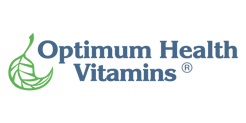Addictions are a tricky business. Technically, there is no limit to the object of one’s addiction.
From drugs, alcohol and gambling, to sex, lies and hoarding, there are endless points of fixation that one can draw upon for the same end purpose: self-destruction. Whether your love of video games has gone overboard, or you nurse a bottle of gin more frequently than a newborn on the breast, when habitual actions turn into life-altering patterns, addiction is born. It is born in the bowels of human consciousness, a repeated action like a hamster trying to escape the cage, pawing at the edges of existence, looking for a way out, and unable to reconcile itself with the futility of that desire. In reality, addiction stems from spiritual emptiness, depression, nutritional deficiencies, allergies and psychological-neurological imbalances that can be addressed through various major lifestyle alterations.
In this article, we will discuss the patterns of addiction, how to know if you or someone close to you is an addict, what nutritional aspects affect “addictive personalities”, as well as how to get help in the short-term and recover fully in the long-term.
Patterns of Addiction
Recognizing patterns of addiction in yourselves and others can go a long way to understanding that a person needs help. It can be a very trying time, where relationships wane significantly, or even stop completely. The whole spectrum has been known to occur, with people not saying anything and witnessing the self-destruction silently, to people having full-blown destruction of relationships due to addictive behavior, arguments and even violence.
It is important to understand that people with addictions have been all-consumed by their addiction. There may be a part of them yearning to get out of their destructive patterns, but they feel that they can’t. It is important to understand that this is a person that needs help, understanding and compassion, no matter how terrible their actions are to themselves and others.
The other important thing to recognize is self-preservation if you are closely related or in proximity to the person with the addiction and their destructive patterns are negatively affecting your life. Sometimes the hardest thing to do is walk away from someone you love, but if you have exhausted all other options, sometimes the reality check of your leaving can shake them awake. You need to understand that this toxic relationship is affecting who you are and how you interact with other people. It is up to you to make the call as to how far down the rabbit hole you are willing to go for someone.
The nine criteria for dependency are as follows, of which, at least 3 must be met to be characterized as an addiction, according to the American Psychiatric Association:
- Substance or behavior often taken in larger amounts or for a longer period than intended
- Persistent desire for the substance or behavior, or one or more unsuccessful attempts to reduce or control its use
- Much time spent in obtaining the substance, taking it and recovering from it
- Frequent intoxication when expected to fulfill major obligations, or recurrent use in physically hazardous situations
- Abandonment or restriction of important social, occupational or recreational activities because of substance abuse
- Continued use despite a persistent and recurrent social, psychological or physical problem exacerbated by its use
- Need to markedly increasing amount of the substance or behavior to achieve the desired effect
- Presence of characteristic withdrawal symptoms
- Use of substance to relieve or avoid withdrawal
Signs and Symptoms
Signs and symptoms of addiction can be tricky because many addicts are very particular about masking their addiction from other people. Depending on the type of drug or addiction, different signs and symptoms may or may not be exhibited through their appearances and behavior. Watch out for the following issues in dealing with an addict:
Marijuana:
- Strong smell consistently emanating from clothing
- Glassy, bloodshot eyes
- Acting stoned (ie. Inappropriate laughter followed by sleepiness)
- Incoherency
- Leaving work, school or other priorities
- Excessive sleeping
- Weight gain
- Presence of bongs, pipes or rolling papers always on hand
- Impotence
- Persistent Cough or respiratory issues
- Lack of attention and focus
- Poor driving skills
- Impaired Memory
- Inability to understand complex information
- Irregular menstruation in women and decreased sperm count in men
Crack/Cocaine:
- Insomnia, lack of sleep for days at a time
- Reckless driving
- Glassy eyes
- Aggressive behavior
- Excessive anger and bravado
- Obsessive amount of working
- Light dust of white powder over desk or other places
- Purchase of steel wool (its burnt ash is used to mix with crack crystals)
- Large quantity of lighters always on hand
- Presence of pipes, mirrors, razor blades, or rolled money
- Aggressive sexuality and deviancy
- Dry mouth and nose
- Excessive talking
Crystal Meth:
- Facial scabs
- Smell of chemicals emanating from their body
- Violent behaviour
- Anxiety
- Confusion
- Insomnia
- Auditory hallucinations
- Paranoia
- Delusions
- Homicidal and Suicidal Ideation
Heroin:
- Inflamed or collapsed veins at the site of injection (if injected)
- Infection of the heart lining and valves
- Liver and Kidney disease
- Respiratory problems
- Excessive sleeping
- Increased susceptibility to HIV, Hep B and C
- Chronic pneumonia
- No response of pupils to light
- Sweating
- Vomiting
- Loss of appetite
Alcohol:
- Aggressive or depressive behavior
- Finding empty bottles of alcohol hidden in various places
- Loss of job and interest in life
- Mood swings, emotional erratic behavior
- Reckless driving
- Lack of money all the time
- Smell of alcohol on their body even if they aren’t drinking
- Rosacea, especially on the nose
- Jaundiced look, yellowing under the eyes
Gambling:
- Leaving the house at odd times
- Obsessive worry over sports games
- Odd phone calls received at weird times
- Unexplained losses of money, significant sums
- Secretiveness
Sex:
- Large amounts of pornography in the form of videos, magazines or online downloads
- Excessive sexual activity with a variety of unknown partners
- Venereal diseases
- Inappropriate conversations including sexual content
- Inappropriate relationships with family members and friends
- Excessive masturbation
Hoarding:
- Accumulation of goods unnecessarily
- Shopping endlessly, at malls and online
- Inability to get rid of anything, even if broken or not used
- Unopened goods found in the house; unused purchases
- Neglect for hygiene and cleanliness
- In extreme circumstances, hoarders will find themselves “buried alive” in their possessions, unable to enter rooms, find a place to sleep in their house, may start accidental fires, or have serious health violations in the house such as mould overgrowths.
With any addict, lying will be a major issue and one of the hardest to overcome psychologically for the person being lied to. Don’t take it personally that this person has succumbed to their addiction at the expense of your relationship. Should they get clean, understand that it may be years before you feel you can trust them again. This is a continuous process taking place between real people: don’t feel like you need to be a superhero about it. Recognize that you feel betrayed and hurt, and take the time to recoup slowly as you rebuild your relationship.
The other signs that may or may not apply to all addicts are: tremors, slurred speech, impaired coordination, deterioration of personal grooming habits, sudden change in social circles, periods of hyperactivity couples with extreme lethargy, joking about addictions (particularly theirs – ie. “I’m such a crackhead! Haha!”), receiving odd phone calls at weird hours, leaving the house at strange times, unexplained losses of finances, loss of interest in previous hobbies and life in general, low attention span (don’t listen when speaking to you), and speaking in pre-fabricated sentences.
The last one is difficult to recognize and needs to be perceived in social circles. But often drug addicts or alcoholics, in order to mask their intoxication, will formulate patterns of speech or rehash stories in an identical manner in order to appear coherent and lucid. This points to disengagement with the conversation at hand due to being stoned or drunk. In the case of those addicted to sex or gambling, you may find them obsessively preoccupied with technology (computers, mobile phones etc), and/or unable to carry on a normal conversation due to distracted or disengaged thoughts.
Myths about Addiction
Below are 5 common misconceptions about addicts and addictions to consider:
- Overcoming addiction is simply a matter of willpower. You can stop using drugs if you really want to.
- Addiction is a disease; there’s nothing you can do about it.
- Addicts have to hit rock bottom before they can get better.
- You can’t force someone into treatment; they have to want help.
- Treatment didn’t work before, so there’s no point in trying again.
Addiction Nutrition
The Influence of Blood Sugar and Dopamine
The effect of unbalanced blood sugar levels and depressed levels of the euphoric neurotransmitter, dopamine, cannot be understated when it comes to their relevance to someone with an addiction, especially in recovery mode.
Balancing blood sugar levels will help to maintain a continuous stream of energy daily for the person recovering from an addiction. It has been extremely well-documented that riding the blood sugar roller coaster and succumbing to crashes makes it significantly more likely that that individual will relapse. I recommend taking a blood-sugar balancing supplement such as Gluco Trim by Optimum Health Vitamins, as well as increasing fibre and protein in the diet. Eating lower-glycemic foods more frequently throughout the day will also help to sustain energy levels and avoid precarious low-glucose situations that force the mind to look desperately for "its crutch".
Regarding dopamine, Dr. Nora Volkow, the director of the National Institute on Drug Abuse in the United States, says that the way a brain becomes addicted to a drug is related to how a drug increases levels of the naturally-occurring neurotransmitter dopamine, which modulates the brain's ability to perceive reward reinforcement. The pleasure sensation that the brain gets when dopamine levels are elevated creates the motivation for us to proactively perform actions that are indispensable to our survival (like eating or procreation). Dopamine is what conditions us to do the things we need to do.
Using addictive drugs floods the limbic brain with dopamine—taking it up to as much as five or 10 times the normal level. With these levels elevated, the user's brain begins to associate the drug with an outsize neurochemical reward. Over time, by artificially raising the amount of dopamine our brains think is "normal," the drugs create a need that only they can meet.
"If a drug produces increases in dopamine in these limbic areas of the brain, then your brain is going to understand that signal as something that is very reinforcing, and will learn it very rapidly," says Volkow. "And so that the next time you get exposed to that stimuli, your brain already has learned that that's reinforcing, and you immediately—what we call a type of memory that's conditioning—will desire that particular drug." Over time, the consistently high levels of dopamine create plastic changes to the brain, desensitizing neurons so that they are less affected by it, and decreasing the number of receptors. That leads to the process of addiction, wherein a person loses control and is left with an intense drive to compulsively take the drug.
When going through a detox and rehabilitation program, it is vital to note that an individual's brain chemistry will undergo significant alterations and due to a normal or less-elevated level of dopamine in the brain, that person may end up feeling depressed, unmotivated and unable to continue treatment, leading to a relapse.
A diet rich in blueberries and spirulina improved dopamine levels in laboratory animals, according to a 2005 study published in the "Experimental Neurology" journal. These foods reduced inflammation in the body to limit damage from free radicals and restore dopamine levels after they were altered by researchers.
Middle Tennessee State University suggests that any foods rich in animal protein can help boost dopamine levels in the body. This includes many varieties of fish, chicken, turkey and other forms of poultry. It also applies to most types of meat, as well as eggs. These tyrosine-rich foods offer an effective way to maintain or increase dopamine stores.
For vegetarians, some non-meat products can help to replenish or increase dopamine levels. Middle Tennessee State University recommends cheese, yogurt and milk, as well as foods that are rich in these ingredients. These options may work for some vegetarians, but not for vegans. Vegans looking to increase tyrosine intake can try pumpkin or sesame seeds, almonds, peanuts or legumes. Many foods that are rich in both protein and carbohydrates can help boost dopamine levels, according to the University of Michigan Health Center. Tyrosine is an important amino acid found in the above mentioned foods that encourages your brain to release dopamine and norepinephrine, naturally. It can also be taken supplementally.
There are also many things that can be taken specifically, depending on what type of addiction is prevelant. The following is a short list of possible helpers on the road to recovery:
N-acetyl-Cysteine and milk thistle for alcoholics, especially and other substance abusers. These helpers assist the liver in neutralizing toxins and help support healthy natural detoxification processes.
Alpha Lipoic Acid and Essential fats for crack/cocaine addicts. One of the side effects of cocaine use is the increased permeability and "leakiness" of the circulatory system, particularly in the brain, which can lead to hemorraghing, stroke, and intracranial oedma. Help to reverse nerve damage and increase the flexibility and strength of the circulatory system by consuming ALA and fish oils.
Flower Essences for hoarders. There are a number of flower essences that are available to help all recovering addicts, including the famous Rescue Remedy Formula and Five-Flower Remedy. However, some of the more personal, lesser known essences may be of benefit, including Sweet Chestnut, Bleeding Heart and Agapanthus. It is recommended to speak with a qualified flower essence practitioner when deciding which shifts are best to make at what time.
Mediation or prayer and therapy for all addicts. Finally, it is best for all addicts to really look deep inside after the initial detoxification process and face their demons with a naked eye. As mentioned,when habitual actions turn into life-altering patterns, addiction is born. It is born in the bowels of human consciousness, a repeated action like a hamster trying to escape the cage, pawing at the edges of existence, looking for a way out, and unable to reconcile itself with the futility of that desire. Why this irreconcilability with life itself?
Some people may find that meditation, prayer or spiritual practices help them with self-control, lowering blood pressure, decreasing desire and with self-reflection. Others may want to couple this with professional therapy in which a qualified health care practitioner can guide you through the process of uncovering why self-destructive behaviour started in the first place, and how to pick up the pieces of your life and start again.
In health,
Nakita

Disclaimer: The above information is provided for informational purposes only and is not intended to replace the advice of your physician.




